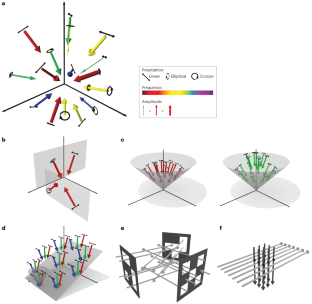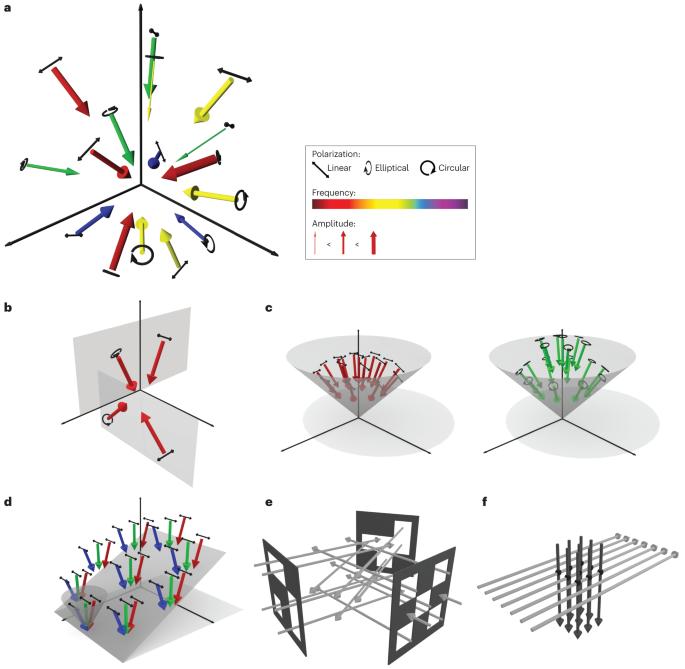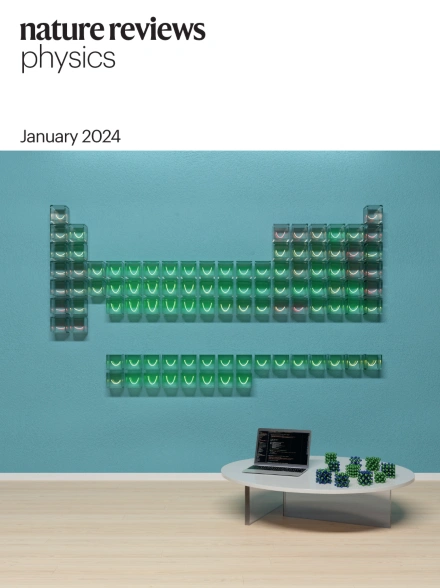用光进行 3D 打印的物理学原理
IF 44.8
1区 物理与天体物理
Q1 PHYSICS, APPLIED
引用次数: 0
摘要
三维打印的目标是通过在称为体素的小体积元素中局部添加材料来实现复杂的三维结构,而不是通过蚀刻、铣削或机械加工来连续减去材料。这一领域始于 20 世纪 70 年代基于光学的提议。要取得进展,需要在物理学、化学、材料科学、激光科学和工程学方面取得突破。本综述重点介绍基于光学的方法的基础物理学,包括干涉光刻、层析体积增材制造、立体光刻、连续液面打印、光片打印、并行时空聚焦和(多)聚焦扫描。讨论的光物质相互作用包括单光子、双光子、多光子或级联非线性光吸收激发过程,以及受激发射耗竭或激发态吸收后的反向系统间交叉去激发过程。未来的物理学挑战在于进一步提高三项指标:空间分辨率、体素创建率和可用的不同材料特性范围。工程学方面的挑战在于如何在结构紧凑、低成本和低能耗的仪器中实现这些指标,以及如何确定新的应用。本文章由计算机程序翻译,如有差异,请以英文原文为准。


The physics of 3D printing with light
The goal of 3D printing is to realize complex 3D structures by locally adding material in small volume elements called voxels — in contrast to successively subtracting material by etching, milling or machining. This field started with optics-based proposals in the 1970s. Progress has required breakthroughs in physics, chemistry, materials science, laser science and engineering. This Review focuses on the physics underlying optics-based approaches, including interference lithography, tomographic volumetric additive manufacturing, stereolithography, continuous liquid-interface printing, light-sheet printing, parallelized spatiotemporal focusing and (multi-)focus scanning. Light–matter interactions that are discussed include one-photon, two-photon, multi-photon or cascaded nonlinear optical absorption processes for excitation and stimulated-emission depletion or excited-state absorption followed by reverse intersystem crossing for de-excitation. The future physics challenges lie in further boosting three metrics: spatial resolution, rate of voxel creation and range of available dissimilar material properties. Engineering challenges lie in achieving these metrics in compact, low-cost and low-energy-consumption instruments and in identifying new applications. This Review categorizes the physics of many different light-based 3D printing modalities and expounds on the light–matter interactions required for the creation of (multi-)material 3D structures. An outlook is provided regarding key printing performance parameters and future directions.
求助全文
通过发布文献求助,成功后即可免费获取论文全文。
去求助
来源期刊

Nature Reviews Physics
Multiple-
CiteScore
47.80
自引率
0.50%
发文量
122
期刊介绍:
Nature Reviews Physics is an online-only reviews journal, part of the Nature Reviews portfolio of journals. It publishes high-quality technical reference, review, and commentary articles in all areas of fundamental and applied physics. The journal offers a range of content types, including Reviews, Perspectives, Roadmaps, Technical Reviews, Expert Recommendations, Comments, Editorials, Research Highlights, Features, and News & Views, which cover significant advances in the field and topical issues. Nature Reviews Physics is published monthly from January 2019 and does not have external, academic editors. Instead, all editorial decisions are made by a dedicated team of full-time professional editors.
 求助内容:
求助内容: 应助结果提醒方式:
应助结果提醒方式:


